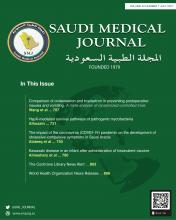Loneliness and social isolation, which can have negative effects on health and longevity, are being exacerbated by the COVID-19 pandemic. More than half of surveyed adults with cancer have been experiencing loneliness in recent months, according to a study published early online in CANCER, a peer-reviewed journal of the American Cancer Society.
Studies conducted before the pandemic reported that 32 percent to 47 percent of patients with cancer are lonely. In this latest survey, which was administered in late May 2020, 53 percent of 606 patients with a cancer diagnosis were categorized as experiencing loneliness. Patients in the lonely group reported higher levels of social isolation, as well as more severe symptoms of anxiety, depression, fatigue, sleep disturbance, cognitive dysfunction, and pain. They were also less likely to be married or partnered, more likely to live alone, and more likely to have a lower annual household income.
The researchers note that while previous pre- and during COVID-19 studies found links between loneliness and the symptoms of anxiety, depression, fatigue, sleep disturbance, cognitive dysfunction, and pain, this study is the first to evaluate all of these symptoms in the same group of patients.
“Patients with cancer, as well as survivors, need to realize that feelings of loneliness and social isolation are very common during the COVID-19 pandemic. In addition to this sense of loneliness, they may be having feelings of anxiety, sadness, and fatigue, as well as problems sleeping and high rates of unrelieved pain - all at the same time,” said lead author Christine Miaskowski, RN, PhD, FAAN, of the University of California, San Francisco.
Importantly, the study included individuals who were primarily white, well-educated, and had a high annual household income. “Given the racial/ethnic disparities associated with the COVID-19 pandemic, we hypothesize that the high symptom burden reported by the patients in our study will be higher in patients who are socioeconomically disadvantaged,” said Dr. Miaskowski.
The investigators stressed that clinicians should ask patients about feelings of loneliness and assess for multiple co-occurring symptoms, and patients and survivors should not hesitate to report such symptoms to their primary care providers or oncologists. “Patients may warrant referrals to psychological services to assist with symptom management,” said Dr. Miaskowski. “In addition, to decrease these feelings, patients and survivors can develop a schedule of social interactions; develop a structure to their daily activities; engage in regular exercise particularly in the outdoors; use stress reduction exercises; and eat a healthy diet.”
URL Upon Publication: http://doi.wiley.com/10.1002/cncr.33603
Full Citation: “Loneliness and symptom burden in oncology patients during the COVID-19 pandemic.” Christine Miaskowski, Steven M. Paul, Karin Snowberg, Maura Abbott, Hala T. Borno, Susan M. Chang, Lee May Chen, Bevin Cohen, Bruce A. Cooper Marilyn J. Hammer, Stacey A. Kenfield, Kord M. Kober, Angela Laffan, Jon D. Levine, Rachel Pozzar, Kim Rhoads, Katy K. Tsai, Erin L. Van Blarigan, and Katherine Van Loon. CANCER; Published Online: April 27, 2021 (DOI: 10.1002/cncr.33603).
Copyright © 2021 The Cochrane Collaboration. Published by John Wiley & Sons, Ltd., reproduced with permission.
- Copyright: © Saudi Medical Journal
This is an Open Access journal and articles published are distributed under the terms of the Creative Commons Attribution-NonCommercial License (CC BY-NC). Readers may copy, distribute, and display the work for non-commercial purposes with the proper citation of the original work.






